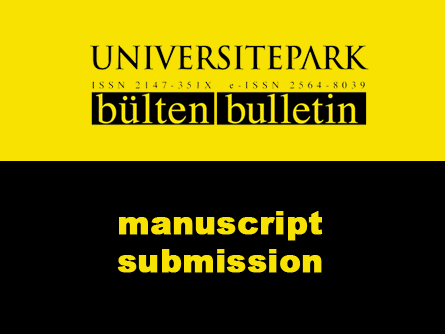Inculcating Civilizational Ethics through Education: Efficacy of Educating for Gross National Happiness
pp. 52-69 | Published Online: October 2022 | DOI: 10.22521/unibulletin.2022.111.4
Rinchen Dorji
![]() Full text PDF |
407 |
251
Full text PDF |
407 |
251
Abstract
Background/purpose – In the trajectory of the Bhutanese education system, imparting traditional and cultural values to children has always been at the core. With the growth and transition of the education system from monastic to modern, various ways have been explored and applied to inculcate values among Bhutanese children. In 2010, a concept called “Educating for Gross National Happiness” was introduced into the Bhutanese education system. At that point it was believed that Educating for Gross National Happiness was the answer to addressing falling values, shifts in attitudes, and beliefs among our children brought about by the forces of globalization. This paper is an attempt to evaluate the effectiveness of Educating for Gross National Happiness in instilling proper human and cultural values among our children. In total, 108 teachers working in schools across the country participated through responding to a survey questionnaire. Findings demonstrate that while there are indications of some positive impacts of the Educating for Gross National Happiness program, certain factors need to be taken into consideration to bring about a more profound impact in the overall development of Bhutanese children as initially envisioned. n this study, I examined the efficacy of Educating for Gross National Happiness in terms of inculcating moral values among children in Bhutanese schools.
Materials/methods – I applied both quantitative and qualitative data collection methods in this research. Quantitative data were collected through a structured questionnaire from 108 teachers located across Bhutan, and qualitative data were collected through interviews, observation, and lesson plan analysis. Triangulation of the quantitative and qualitative data was conducted in order to validate the findings.
Results – The findings revealed that while there are some indications of success from the Educating for Gross National Happiness program, it has yet to deliver any profound impact in the overall development of Bhutanese children as initially envisioned.
Conclusion – The Educating for Gross National Happiness program could become much more effective if certain factors such as providing adequate training to teachers on the revised curriculum, and introducing standardized testing of values-based education as a separate subject area.
Keywords: GNH, Education, Values, Morals, tha-dham-tsig, ley gju-drey
ReferencesAllam, Z. (2007). A study of relationship of job burnout and job anxiety with job involvement among Bank employees. Management and Labor Studies, 32(1), 136-145. https://doi.org/10.1177%2F0258042X0703200109
Bhutan Ministry of Education. (2017). 31st Educational Policy Guidelines and Instructions (EPGI) 2013-2017. http://www.education.gov.bt/wp-content/uploads/2021/09/31st_epgi.pdf
Buchanan, T. K. (2017). Mindfulness and Meditation in Education. Young Children, 72(3), 69-74. https://www.jstor.org/stable/90013688
Dorji, J. (2005). Quality of Education in Bhutan: The Story of Growth and Change in the Bhutanese Education System. KMT.
Dorji, R. (2020). A Survey study on the Reading habits among English Major Students of Sherubtse College: Issues and Perspectives. International Journal of Information Technology and Language Studies, 4(3), 1-11. https://journals.sfu.ca/ijitls/index.php/ijitls/article/view/185
Drukpa, K. (2016). Educating For Gross National Happiness: A New Paradigm for Education in Bhutan [Doctoral dissertation, University of New Brunswick]. https://unbscholar.lib.unb.ca/islandora/object/unbscholar%3A7644/
Drukpa, Z. (2021). Sherubtse College: An Epitome of Higher Education in Bhutan. United Printing Press.
Gyamtso, D. C., Sherab, K., & Maxwell, T. W. (2017). Teacher learning in changing professional contexts: Bhutanese teacher educators and the Educating for GNH initiative. Cogent Education, 4(1), Article 1384637. https://doi.org/10.1080/2331186X.2017.1384637
Hayward, K., & Colman, R. (2010). Proceedings, Educating for Gross National Happiness Workshop 2009. Ministry of Education, Royal Government of Bhutan. http://www.gpiatlantic.org/pdf/educatingforgnh/educating_for_gnh_proceedings.pdf
Phuntsho, K. (2004). Echoes of ancient ethos: Reflections on some popular Bhutanese social themes. Centre for Bhutan Studies.
Phuntsho, K. (2020). The Cultural Construction of Bhutan: An Unfinished Story. Druk Journal, 1(1), 66-75. http://drukjournal.bt/the-cultural-construction-of-bhutan-an-unfinished-story/
Planning Commission. (1999). Bhutan 2020: A Vision for Peace, Prosperity and Happiness (Part II). Royal Government of Bhutan. https://www.pce.edu.bt/wp-content/uploads/2020/01/Bhutan-2020.pdf
Riley, K. (2011). Educating for Gross National Happiness. Sustainable schools project, Shelburne Farms. http://www.sustainableschoolsproject.org/sites/default/files/Bhutan%20-%20Riley%20Sp%2011.pdf
Sherab, K. (2013). Gross National Happiness Education in Bhutanese schools: Understanding the experiences and efficacy beliefs of principals and teachers. [Doctoral dissertation, University of New England]. https://hdl.handle.net/1959.11/16997
Thinley, P. (2016). Overview and Heart Essence of the Bhutanese Education System. Education in the Asia-Pacific Region, 36, 19-37. https://doi.org/10.1007/978-981-10-1649-3_2
Tobgay, S. (2019). Education system in Bhutan-Past, Present and Future: A Reflection.
Tshering, N. (2021). Effect of Mindfulness Meditation Practices on Students’ Behavior Change in Secondary Schools in Trashigang District, Bhutan. Asian Journal of Education and Social Studies, 20(1), 13-20. https://doi.org/10.9734/AJESS/2021/v20i130476
Ura, K. (2009). A Proposal for GNH Value Education in Schools. Gross National Happiness Commission.
Wangyel, T. (2001). Ensuring Social Sustainability: Can Bhutan’s Education System Ensure Intergenerational Transmission of Values? Journal of Bhutan Studies, 3(1), 106-131. https://www.bhutanstudies.org.bt/publicationFiles/JBS/JBS_Vol3No1/4.education.pdf
Zangmo, S. (2014). A Gross National Happiness Infused Curriculum: The Promise of a More Meaningful Education in Bhutan [Master’s thesis, Western Michigan University]. https://scholarworks.wmich.edu/masters_theses/536/
UNIBULLETIN News!
► New issue coming soon! (Volume 13 Issue 1, 2024)
► Call for Papers
UNIBULLETIN is calling for submissions. Authors are invited to submit papers from the all fields of the Education (General) and Social Sciences (General) in the international context. All submissions should be presented only in English.
